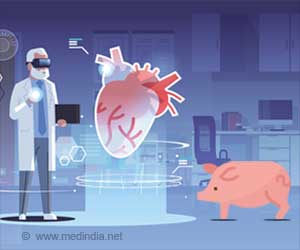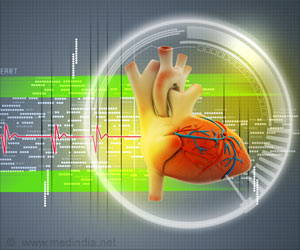The safety of donor hearts from patients who were COVID-19-positive and those who were not appeared to be equal.
- Donor hearts with COVID-19 are just as safe for heart transplantation as hearts without COVID-19
- This may assist in addressing the shortage of heart donors for transplants and shorten waiting periods
Increased Demand for Heart Transplantation
The 2022 American Heart Association/American College of Cardiology/Heart Failure Society of America suggests heart transplantation for patients who proceed to advanced heart failure (stage D). Despite receiving the best medical care, people with stage D heart failure experience significant symptoms like shortness of breath, exhaustion, and edema that interfere with everyday life and may result in recurring hospitalizations.According to the American Heart Association’s Heart Disease and Stroke Statistics - 2022, the demand for heart transplants has increased by a factor of two over the previous 30 years, rising from 3,658 recipients in 2020 to 1,676 recipients reported in the U.S. in 1988. According to the United Network for Organ Sharing, more than 3,400 Americans require a heart right now.
“Despite the increased need for this operation, there is a continued shortage of donor organs for people in need of transplantation. The COVID-19 pandemic made things worse with an increased rate of donors testing positive for COVID-19, which generally renders the donors unsuitable for transplantation,” Kim said. “However, several academic centers have started to use COVID-19-positive donor hearts for heart transplantation in recent months and have reported good results.”
In this study, researchers examined the United Network for Organ Sharing databases for all adult heart transplants performed in the US. between February 2021 and March 2022, which included the first 84 heart transplants from COVID-19-positive donors out of 3,289 heart transplants overall. Patients who received hearts from COVID-19-positive donors and those who received hearts from COVID-19-negative donors had their post-transplant outcomes compared to up to 30 days later. The researchers evaluated mortality rates, postoperative complications, and death from specific reasons, including infections and lung issues, which are well-known risks for persons with a history of COVID-19. They also looked at mortality rates in the hospital or within 30 days following the procedure.
Heart Transplant Outcomes in Patients who Received a COVID-19-Positive Donor Heart
According to the data, there was no statistically significant difference between the groups’ heart transplant outcomes. They discovered: 1. Both recipients’ death rates in the hospital and 30 days after transplantation were comparable, as were their rates of complications like lung problems and graft failure (a disease when the body rejects the new organ).2. Organ rejection occurred in 2.4% of recipients from COVID-19-positive donors compared to 1% of the other recipients; the average hospital stays for patients getting a heart from a COVID-19-positive donor was 15 days as opposed to 17 days.
3. 96.1% of recipients of hearts from COVID-19-positive donors made it through the first 30 days, compared to 97% of recipients of hearts from COVID-19-negative donors.
4. None of the four patients who passed away after receiving a heart from a COVID-19-positive donor died due to an infection or respiratory disease.
“These findings provide evidence that outcomes were similar at 30-days post-transplant among patients who received COVID-19-positive donor hearts, so the potential risks appear to be lower than expected,” said Eldrin F. Lewis, M.D., M.P.H., FAHA, chair of the Association’s Scientific Publishing Committee, an advance heart failure and heart transplant specialist, and the Simon H. Stertzer M.D. Professor of Cardiovascular Medicine and chair of the division of cardiovascular medicine at Stanford University. “In turn, this may help to address the shortages in donor’s hearts for transplantation and reduce waiting times, since people often get sicker as heart failure progresses while waiting for a donor heart to become available.”
Source-Medindia











